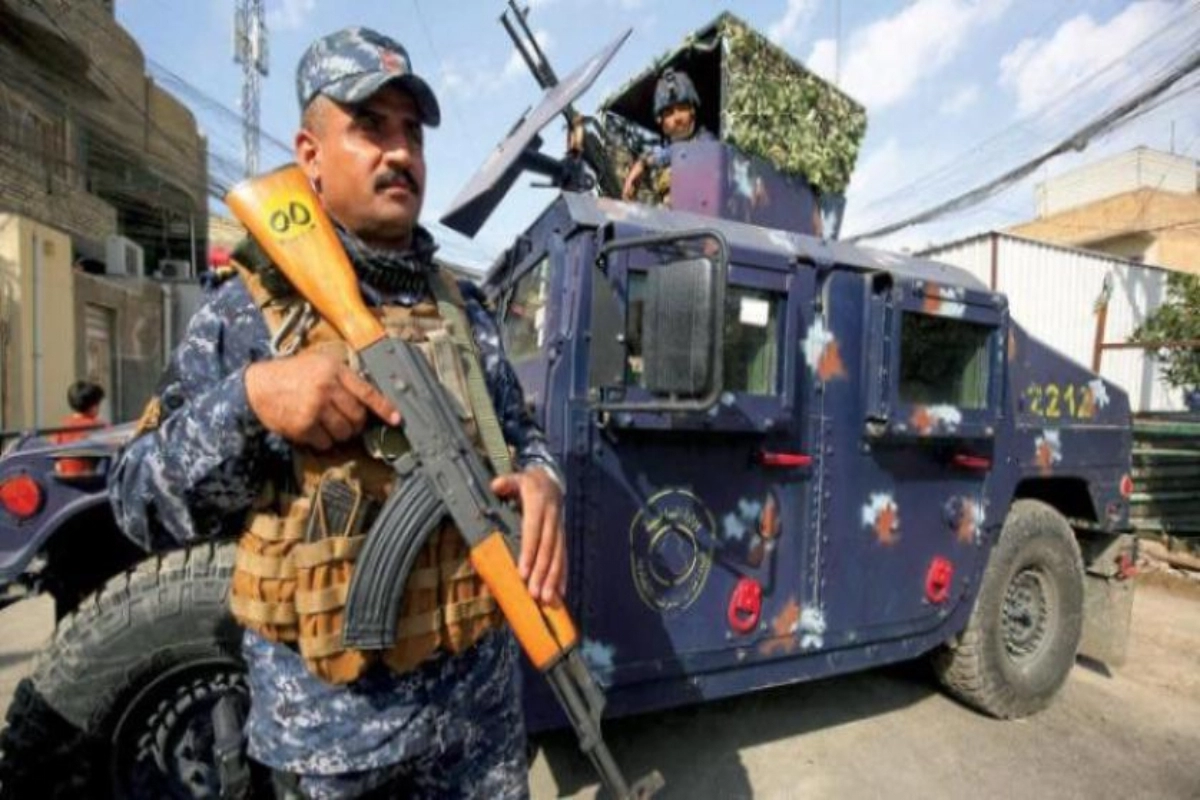The Islamic State – also known as ISIS, ISIL, or Daesh – held about a third of Syria and 40 per cent of Iraq. By December 2017 it had lost 95 per cent of its territory, including its two biggest properties, Mosul, Iraq’s second-largest city, and the northern Syrian city of Raqqa, its nominal capital. In 2018, the focus of the campaign against ISIS shifted to eastern Syria, where a U.S.-backed coalition of Syrian Kurds and Arabs known as the Syrian Democratic Forces (SDF) gradually captured key ISIS positions. The SDF briefly suspended its offensive in November 2018 after Turkish attacks on Kurdish positions diverted its attention. On December 14, the SDF captured the town of Hajin. Hajin’s fall reduced ISIS territory to a few villages along the Euphrates River near the Iraqi border. ISIS has again started to spread its wings by resorting to widespread violence, bombings and killings in Iraq.
At least a dozen members of Iraq’s federal police were killed recently during an attack near Kirkuk in the country’s north, where remnants of Daesh group militants are active, police and government sources said.
A bomb blast initially targeted a truck transporting the men in uniform. It was followed by “a direct attack with small arms,” near the village of Chalal Al-Matar, a federal police officer on condition of anonymity, claimed the assault was carried out by Daesh.
However, no group immediately claimed responsibility for the attack.
An official from the Ministry of Interior in Baghdad confirmed the attack and declared that a dozen policemen, including one officer and a lone assailant, were killed in the attack.
ISIS controlled a large part of Iraq and Syria in 2014
Notably, ISIS seized large swathes of Iraqi and Syrian territory in 2014, declaring a “caliphate” where they ruled with brutality before the militants’ were dethroned in late 2017 by Iraqi forces backed by a US-led military coalition. ISIS lost its last Syrian bastion, near the Iraqi border in 2019.
The US-led anti-ISIS coalition continued a combat role in Iraq until December last year; still nearly 2,500 American soldiers continue to support the Iraqi forces.
ISIS remnants however remain active in several areas of Iraq.
Baghdad’s security forces continue to carry out counter-terrorism operations against the group and the deaths of Daesh fighters in airstrikes and raids are regularly announced.
Despite the setback which has left ISIS a shadow of its former self, the group is still a force to reckon with its underground network of between 6,000 and 10,000 fighters, which can carry out attacks on both sides of the porous Iraqi-Syrian border. Another roadside bomb that hit a military vehicle recently, killed three Iraqi soldiers in farmland north of Baghdad. Last month a machine gun attack on a remote northern Iraqi military post killed four soldiers near Kirkuk, a military source said.
In January 2021, ISIS claimed responsibility for a twin suicide attack at a Baghdad market that killed 32 people, the first such assault in the city for the last three years.
ISIS is a problem of Yesterday, Today and Tomorrow
Meanwhile, we have to accept that ISIS is a problem of Yesterday, Today and Tomorrow as well.
The ramifications of ISIS’s violent legacy still require collective action, but there is a light at the end of the tunnel.
ISIS is the problem of yesterday, today and tomorrow. We have a multi-generational challenge on our hands — not just when you look back on the history of extremism in this region over the past 30 years but also looking forward at how the next 10 to 20 years might unfold.
Also Read: Missiles pour down on Ukraine in one of Russia’s greatest attacks till date
Rehabilitation of displaced persons is of paramount importance
The enduring defeat of ISIS has got to incorporate a way forward for the displaced persons and all the people that are at risk across the theatre; if not, we are actually never really going to defeat ISIS and the problem is going to come back. In fact, some of these issues are already present in Iraq and Syria: Thousands of fighters are still at large; more are in prison, while their family members are vulnerable or may present vulnerability, if unaddressed.
With persistence and methodical work, there is light at the end of the tunnel. Iraqis and Syrians cannot do it on their own though. The international community cannot do it for them either. It must be a joint, sustained effort, while the coalition responds to the rising threat of ISIS in Africa too.
Also Read: Twitter: Elon Musk’s team hunts for new investors as advertisers flee
Keep watching our YouTube Channel ‘DNP INDIA’. Also, please subscribe and follow us on FACEBOOK, INSTAGRAM, and TWITTER












